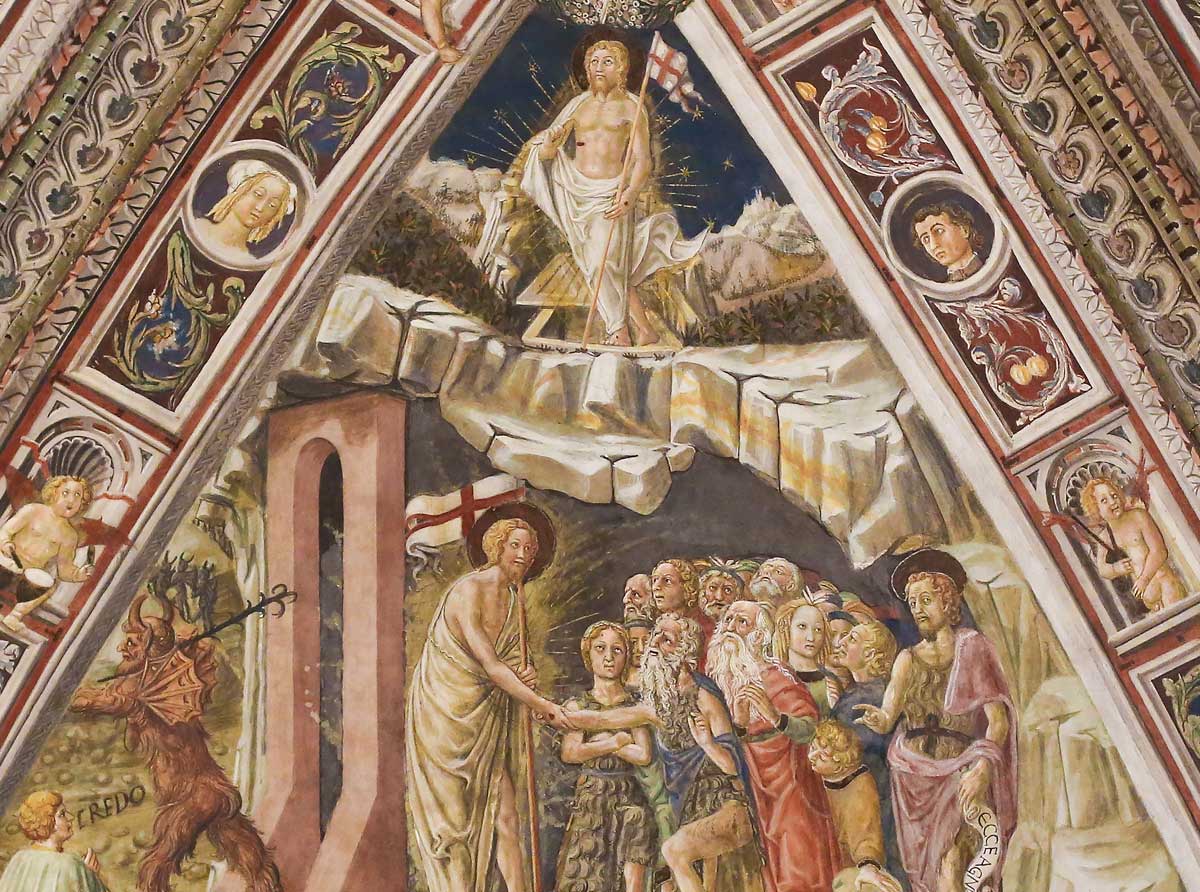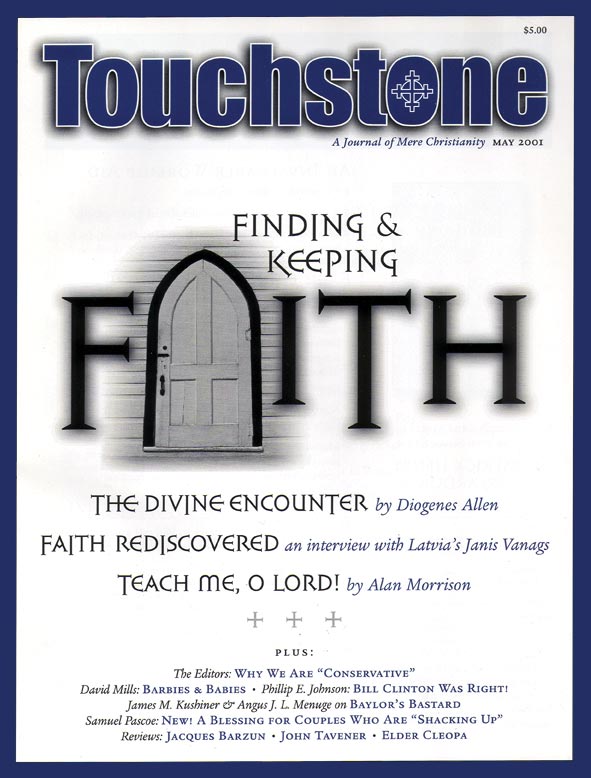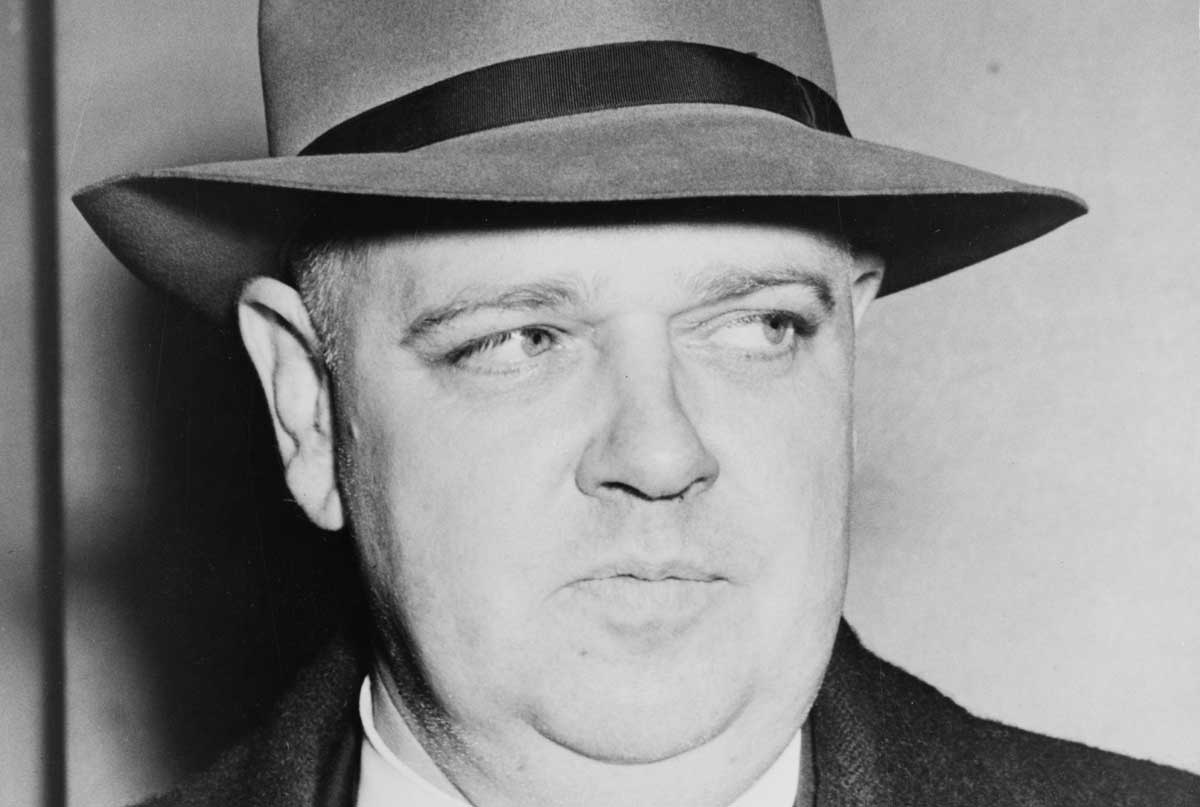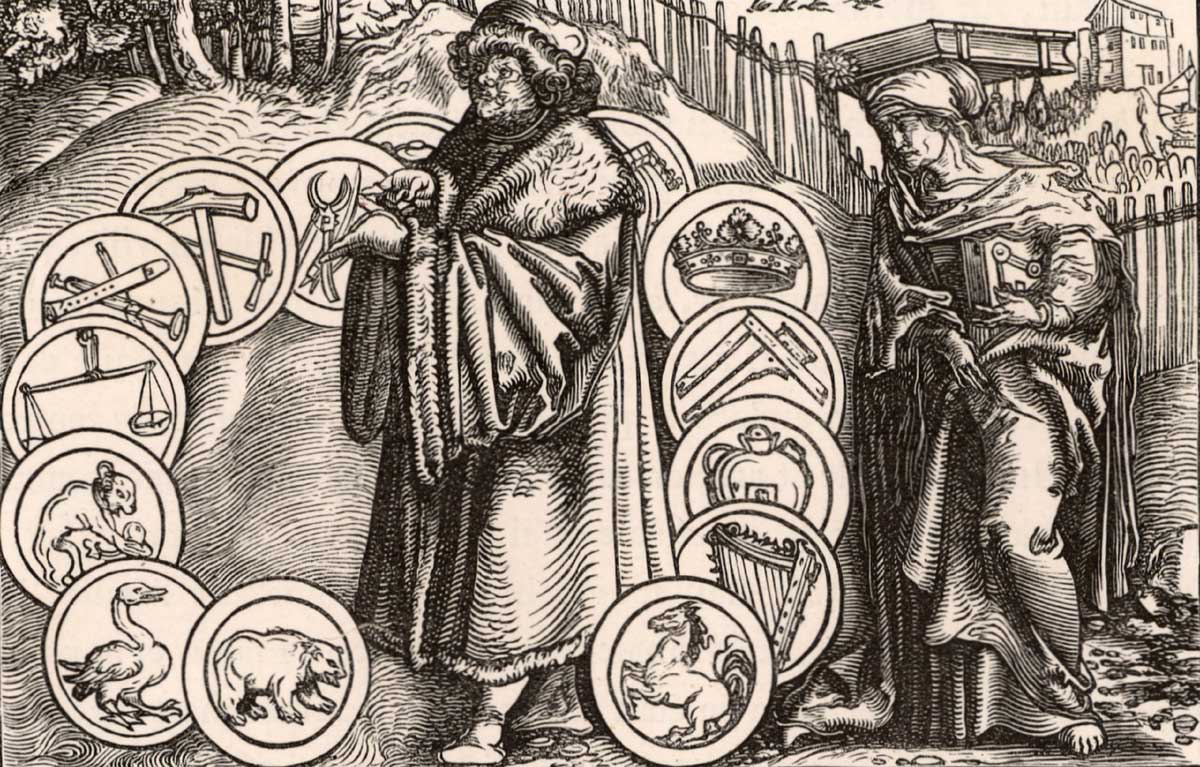History Free & Clear
Patrick Henry Reardon on the Errors of Determinism
We are beginning a new millennium, which most of us, I suppose, hope will also be an occasion of really new beginnings. For this to happen—that is, for any of us truly to begin anew—it seems important speedily to dismiss two commonly accepted notions often expressed in popular slogans.
These slogans are “what will be will be” and “history always repeats itself.” These ideas appear, of course, in other disguises, some very much more sophisticated. Both can be found dressed up in the language of sociological and psychological determinism, delivered in the jargon and with the authority of full professors at famous institutions.
The ideas are, nevertheless, still very bad ones. Let me suggest that no one would really want to live in the world these slogans describe; at the very least, they take the fun out of life.
What Will Be
“What will be will be,” a philosophy popularized, if I recall correctly, by Doris Day, says that everything is already determined anyway, so don’t worry about it. It is the theory of Fate, whether in the Oedipus of Sophocles or the Lolita of Nabokov. In short, the events of our existence are pre-scheduled, and there’s not a whole lot we can do about it.
Let us be sure we understand this: To say that everything is determined is to say that everything happens of necessity. Think about this very hard: Necessity and possibility are mutually exclusive. If everything is necessary, then nothing is possible. If “what will be will be,” of nothing can we say, “maybe it will and maybe it won’t.”
If necessity covers everything, possibility covers nothing, and choice is illusory. Even what seems to be a new bonnet is just old hat. In such a universe there is no room to maneuver; life is so tight, so controlled, that there is no “give” or “play” in it. All conclusions are foregone conclusions.
Now as a point or matter of elementary logic, one can hardly conceive any idea less favorable to really new beginnings than the thesis that life has no possibilities, that everything has already been determined anyway, whether such determination is caused by God’s almighty will (as in Islamic doctrine), or by an impersonal fortune (according to many sources from Homer to Schopenhauer), or by material and mechanical forces (taught by Hobbes and others), or, more recently, by social dynamics (according to the popular theories of, say, B. F. Skinner).
I am not sure I can imagine any notion less compatible with the biblical and Christian teaching on history than one that says, “what will be will be.” To say, as the Bible and the Church have always insisted on saying, that we are responsible beings answerable to God for our lives and our moral decisions is to assert that our choices are really free, that we have a real say about what will be, that we do not simply act from compulsory forces outside our control, that what comes forth from us is not just the sum total of the influences brought to bear upon us, that “it is not what enters a man from without that defiles him.”
If, for example, I take a hammer and fling it at the unsuspecting (but probably deserving) head of my friend Ralph, the hammer itself, having no say over the matter, cannot be held responsible for what happens to the skull of that unfortunate gentleman. But if “what will be will be,” if my throwing of that hammer has been pre-determined, if it is only the sum total of the influences brought to bear upon me, if the action is simply caused either by God’s will or by social dynamics or by anything else, then I am no more responsible than the inert hammer. If my human choice really does not exist, the hammer and I are equally unaccountable for the fate of poor Ralph and his grieving head.
Patrick Henry Reardon is pastor emeritus of All Saints Antiochian Orthodox Church in Chicago, Illinois, and the author of numerous books, including, most recently, Out of Step with God: Orthodox Christian Reflections on the Book of Numbers (Ancient Faith Publishing, 2019).
subscription options
Order
Print/Online Subscription

Get six issues (one year) of Touchstone PLUS full online access including pdf downloads for only $39.95. That's only $3.34 per month!
Order
Online Only
Subscription

Get a one-year full-access subscription to the Touchstone online archives for only $19.95. That's only $1.66 per month!
bulk subscriptions
Order Touchstone subscriptions in bulk and save $10 per sub! Each subscription includes 6 issues of Touchstone plus full online access to touchstonemag.com—including archives, videos, and pdf downloads of recent issues for only $29.95 each! Great for churches or study groups.
Transactions will be processed on a secure server.
more on history from the online archives

15.6—July/August 2002
Things Hidden Since the Beginning of the World
The Shape of Divine Providence & Human History by James Hitchcock

14.6—July/August 2001
The Transformed Relics of the Fall
on the Fulfillment of History in Christ by Patrick Henry Reardon
more from the online archives

11.5—September/October 1998
Speaking the Truths Only the Imagination May Grasp
An Essay on Myth & 'Real Life' by Stratford Caldecott
calling all readers
Please Donate
"There are magazines worth reading but few worth saving . . . Touchstone is just such a magazine."
—Alice von Hildebrand
"Here we do not concede one square millimeter of territory to falsehood, folly, contemporary sentimentality, or fashion. We speak the truth, and let God be our judge. . . . Touchstone is the one committedly Christian conservative journal."
—Anthony Esolen, Touchstone senior editor










